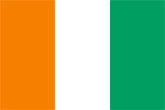People of Côte d'Ivoire: Keep lucidity

The people of Côte d’Ivoire must be supported in their efforts to bring the country’s political crisis to a peaceful conclusion, while all talk of military intervention must be resisted, writes Bernard Founou-Tchuigoua.
In the political crisis that Côte d'Ivoire goes through, the lucidity of the Ivorian people and African residents has been exemplary. We must support them by texts that focus on the conditions enabling it to continue. We must focus debates on the need for democracy and the obstacles to be overcome to make it an achievable goal and an irreversible process.
Political democratisation in Africa can only be defended by a people in the long term if it is associated with social progress, the development of natural resources of soil and subsoil for national economic development or sub-regional self-reliance, and anti-imperialist Pan-Africanism. Otherwise, the failure is certain. I draw attention to the techniques that Western imperialist powers are now implementing to block the convergence of these three requirements, and keep government at gunpoint by the presence of military bases or creating rebellions.
Why did the US precipitate Liberia, their only African colony, into chaos and London find it useful to extend the chaos in Sierra Leone? We say they were above all intended to force the Americo-Liberians and Anglo-Sierra Leoneans to share power with the natives to broaden the social base of the control over diamond mines and forest reserves. At first his belonging to both groups (native mother and Americo-Liberian father) and his temperament have played for George Taylor. But as during the war he gave the impression of being closer to Félix Houphouët-Boigny and then to France, they decided he would not remain head of state. Notwithstanding his election according to laws and under the supervision of the international community, he was forced to resign against the promise of finding asylum in Nigeria. He is now facing the International Criminal Court in The Hague.
In Nigeria, the running imperialist project comes down to this: The country's oil should be exclusively devoted to serving the energy security of the US. In return the ruling classes can waste oil rents as they please and incite people to kill each other on behalf of different ways to worship the same god. A rebellion has been totally made up, keeping remote non-Western and sometimes non-Anglo-Saxon corporations. In this context they can even recognise Nigeria as the regional power, but a giant with feet of clay.
The Sahel, a region that symbolises famine, became an area of strategic natural resources and thus fostered an AQIM (Al-Qaeda in the Islamic Maghreb) base whose origin dates back to the Islamic brigades recruited by the US in their fight against a secular government in Afghanistan. Niger and Mali are seen as a testing ground or field simulation of the struggle against governments that attempt to nationalise the mining or oil companies or accept non-Western investment in the exploitation of strategic minerals. In Niger the pretext of a change of constitution was enough to justify a coup which allowed to call the Chinese claims to invest in uranium into question; after that, as part of Franco-American mini-rivalries, Niger has been accused of delivering the uranium ore to Iran.
In Sudan, John Garang, who was yet planning a confederal state and was an ally subordinate to the collective imperialism, was murdered in order to eliminate a ‘friend who knew too much’ and secondly to transform its proposed project into two sovereign states, to house NATO (North Atlantic Treaty Organisation) new military bases.
In these circumstances it is understandable that the people of West Africa oppose a military intervention by ECOWAS (Economic Community Of West African States) in Côte d'Ivoire, because they know that the United States and the European Union are in line with the monopolisation of natural resources in West Africa using two complementary strategies, the installation or enhancement of military bases and the introduction of chaos to come as the saviours of people at risk. West Africa needs a regionalisation which supports the efforts of peoples to control their fate.
BROUGHT TO YOU BY PAMBAZUKA NEWS
* Bernard Founou-Tchuigoua is the Third World Forum research director.
* Please send comments to [email protected] or comment online at Pambazuka News.

